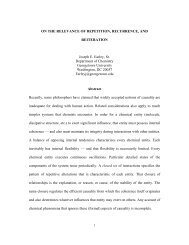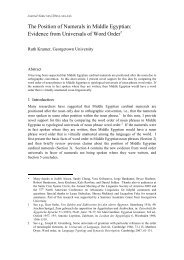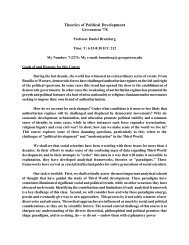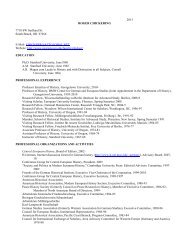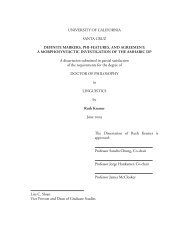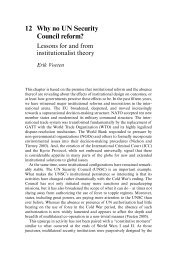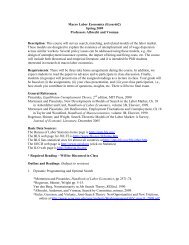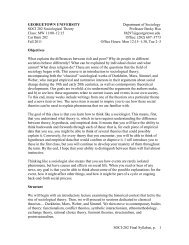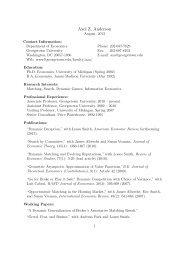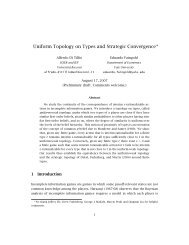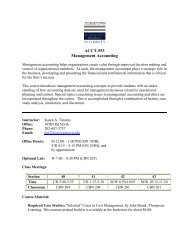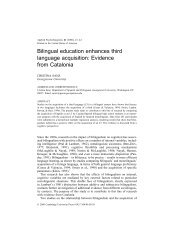PDF File - Georgetown University
PDF File - Georgetown University
PDF File - Georgetown University
Create successful ePaper yourself
Turn your PDF publications into a flip-book with our unique Google optimized e-Paper software.
Luca Anderlini, Leonardo Felli and Andrew Postlewaite 11A pooling equilibrium in which the buyer is accepting the offer from both types of selleris clearly inefficient. The expected surplus in this case is equal toW P = v b − c b + v g − c g2(3)which, by (1) is obviously lower than what expected surplus would be in a first best scenarioin which trade takes place if and only if S is of type g. In this case, expected surplus wouldbeW F = v g − c g2(4)2.4. Equilibrium With An Active CourtWe now consider a court that actively intervenes and voids some contracts. In so doing thecourt will be able to induce separation between the two types of seller and increase expectedwelfare. The court can adopt a simple policy of voiding “extreme” contracts by imposing aprice cap. This will rule out the range of prices at which the bad seller wants to pool, thusforcing separation, and hence preventing the sale from taking place when the seller is bad.This, as we remarked above, will raise expected surplus from W P , as in (3), to W F , as in (4).Proposition 2. Equilibrium with an Active Court: Assume the court announces that it willvoid all contracts with a price p exceeding some price cap p such that c g ≤ p < min{v g , c b }.Then there is a unique equilibrium payoff that weakly Pareto dominates all other equilibriumpayoffs for both types of seller. This payoff is obtained when the two types of seller separate:the good seller offers a price p and the bad seller does not transact.Suppose that we have a pooling equilibrium at an offered price p = p b = p g ≤ p. Sincep < c b , the bad seller will have a negative payoff if the offer is accepted. He can do betterby not trading, which he can accomplish by setting a sufficiently high price. Hence, the onlypossibility of a pooling equilibrium at which p is offered by both types of seller must involvethe buyer refusing.There will be separating equilibria in which the good seller announces a price p g ∈ (c g , p]and the bad seller does not trade (say, but announcing a price p b > v g ). 14 Since p g > c g14 We assume that any other offered price is believed to come from the bad seller.



